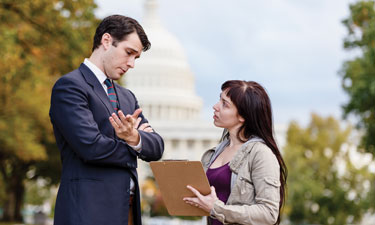 Public health threats can emerge at a moment’s notice and sometimes last a lifetime. When most Americans think of public health, it conjures thoughts of the traditional battles against obesity, cancer, heart disease, smoking and other chronic diseases that have plagued Americans for decades. Traditional public health efforts have been backed by massive media and advertising campaigns — think “Just Say No,” the famous anti-drug initiative helmed by former First Lady Nancy Regan during the 1980s. They also required long, drawn-out research and education efforts to find cures or reduce usage. It often took years to diagnose potential causes and symptoms before the public became aware, let alone for governments to act. For decades, these public health battles have been funded by bouncing levels of public dollars from state, local and federal governments, and bolstered by private giving campaigns, long-term commitments from endowments and the selfless largess of many well-heeled celebrities.
Public health threats can emerge at a moment’s notice and sometimes last a lifetime. When most Americans think of public health, it conjures thoughts of the traditional battles against obesity, cancer, heart disease, smoking and other chronic diseases that have plagued Americans for decades. Traditional public health efforts have been backed by massive media and advertising campaigns — think “Just Say No,” the famous anti-drug initiative helmed by former First Lady Nancy Regan during the 1980s. They also required long, drawn-out research and education efforts to find cures or reduce usage. It often took years to diagnose potential causes and symptoms before the public became aware, let alone for governments to act. For decades, these public health battles have been funded by bouncing levels of public dollars from state, local and federal governments, and bolstered by private giving campaigns, long-term commitments from endowments and the selfless largess of many well-heeled celebrities.
The most recent public health threats, including the toxic drinking water plaguing residents of Flint, Michigan; sexually transmitted and mosquito-driven outbreaks of Zika in Puerto Rico, the Virgin Islands, American Samoa and elsewhere; travel-related confirmations of Zika in the continental United States; and the scourge of opioid addiction raging throughout rural farming communities, suburban cul-de-sacs and urban jungles around the nation, have moved across states lines and international borders like tidal waves. The unprecedented speed of these crises — especially the opioid pandemic — has taken entire communities captive in their wake with surprising quickness. However, unlike the addiction episodes of the “Just Say No” era, where entire communities were swallowed whole before the public conscious was awakened, public health advocates, including park and recreation agencies, are working to make sure state, local and national leaders are aware of emerging threats before they become national problems.
Armed with reams of data, the latest research and enough personal stories to melt the hearts and open the wallets of the toughest fiscal hawks, public health advocates have moved into the 21st century and away from the sequestered approaches of the past. Instead of hiding in their laboratories and sending leather-bound journals of wonky academic papers that were filled with unintelligible parochial jargon, confusing charts and NASA-approved graphs to mayors, governors and members of Congress — often without any layman’s explanation of what these journals and articles were about — public health advocates are meeting leaders on their own turf: in state legislatures, city councils and the halls of Congress.
In the case of park and recreation agencies, Jayni Rasmussen, NRPA’s advocacy and outreach specialist, has created the Park Champions initiative. Park Champions is NRPA’s effort to develop local park and recreation advocates in all 50 states who are dedicated to ensuring elected officials at every level understand the important role park and recreation agencies play in building communities and changing lives. Park Champions has turned the traditional idea of advocacy on its head. Instead of constantly meeting leaders where they are to deliver our message of public health, Park Champions embraces a show-and-tell model. Our greatest assets are the picturesque parks that we manage and the inviting and accessible recreation centers that we run, whose doors are open to anyone and everyone, and the wonderful children, adults and seniors who we serve. Park Champions allows us to leverage our assets in a way that most other public health advocates can’t. Scientists can’t bring members of Congress out to local parks to discuss the importance of mosquito abatement and Zika preparation. Researchers can’t invite the mayor to a community meeting to discuss anti-drug awareness. Doctors can’t host a peewee league tee-ball game to talk about childhood obesity with the governor — but Park Champions can do all of the previously mentioned activities with ease.
As the country grapples with Zika prevention and preparation efforts, combats the opioid pandemic and continues to fight and fund the traditional public health battles of the past — especially those related to obesity and physical inactivity — park and recreation agencies are uniquely positioned to not only tell elected officials about the importance of public health, but to also show them why public health matters through visits to our agencies.
Our advocacy efforts are incomplete without a motivated and committed legion of Park Champions in every state. Learn more about NRPA’s Park Champions initiative.
Oliver Spurgeon III is NRPA’s Government Affairs Manager.

